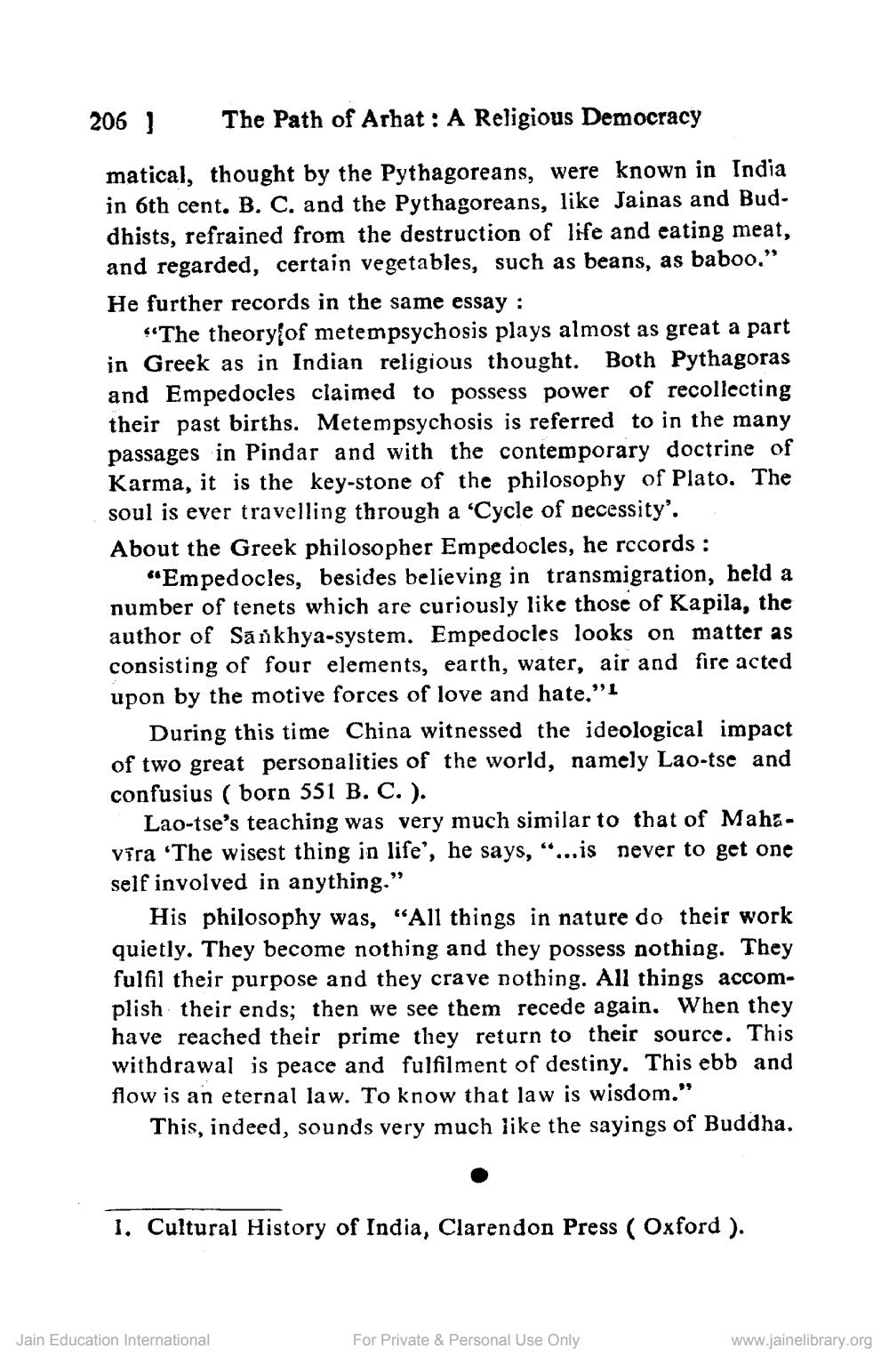________________
2061
The Path of Arhat : A Religious Democracy
matical, thought by the Pythagoreans, were known in India in 6th cent. B. C. and the Pythagoreans, like Jainas and Buddhists, refrained from the destruction of life and eating meat, and regarded, certain vegetables, such as beans, as baboo." He further records in the same essay :
“The theory of metempsychosis plays almost as great a part in Greek as in Indian religious thought. Both Pythagoras and Empedocles claimed to possess power of recollecting their past births. Metempsychosis is referred to in the many passages in Pindar and with the contemporary doctrine of Karma, it is the key-stone of the philosophy of Plato. The soul is ever travelling through a 'Cycle of necessity'. About the Greek philosopher Empedocles, he records :
“Empedocles, besides believing in transmigration, held a number of tenets which are curiously like those of Kapila, the author of Sankhya-system. Empedocles looks on matter as consisting of four elements, earth, water, air and fire acted upon by the motive forces of love and hate."!
During this time China witnessed the ideological impact of two great personalities of the world, namely Lao-tse and confusius (born 551 B. C. ).
Lao-tse's teaching was very much similar to that of Mahavīra ‘The wisest thing in life', he says, “...is never to get one self involved in anything."
His philosophy was, “All things in nature do their work quietly. They become nothing and they possess nothing. They fulfil their purpose and they crave nothing. All things accomplish their ends; then we see them recede again. When they have reached their prime they return to their source. This withdrawal is peace and fulfilment of destiny. This ebb and flow is an eternal law. To know that law is wisdom."
This, indeed, sounds very much like the sayings of Buddha.
1. Cultural History of India, Clarendon Press (Oxford ).
Jain Education International
For Private & Personal Use Only
www.jainelibrary.org




